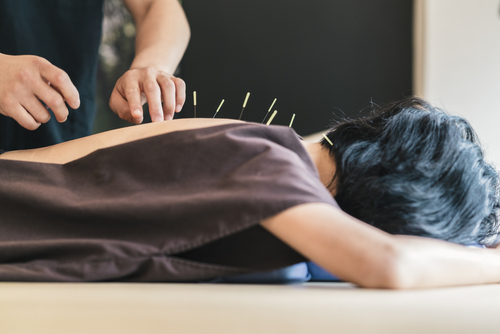Are You an Athlete Who Needs Sports Acupuncture?
Sports acupuncture can help you increase circulation and energy levels, and reduce stress and anxiety. This is beneficial before, during and after training.
 Acupuncture is one of the oldest and most used integrative medical procedures in the world. It has become increasingly integrated into mainstream healthcare, including hospital and military systems, substance rehabilitation clinics, and professional sports.
Acupuncture is one of the oldest and most used integrative medical procedures in the world. It has become increasingly integrated into mainstream healthcare, including hospital and military systems, substance rehabilitation clinics, and professional sports.
Acupuncture involves using very thin needles to stimulate select points of the body. Needling of these areas encourages circulation and stimulates the nervous system. This improves the flow of blood, which carries oxygen and nutrients, and sends signals to your brain and spinal cord that promote the release of your natural healing chemicals. These include compounds that reduce pain, balance hormones, boost immunity, and more.
Acupuncture is a part of Traditional Chinese Medicine (TCM), whose theories revolve around the concept of qi (pronounced “chee”). As part of the holistic system of TCM, qi factors in physical, mental, and emotional well-being, and the relationships between them. Acupuncture, an important branch of this system, can be used to help address imbalances that affect health.
While acupuncture is most known for treating pain, research has shown benefits for numerous conditions. It can also be used for maintenance and prevention to optimize health and wellness. Recommendations for acupuncture come from several professional health and medical organizations in the United States and abroad, such as the World Health Organization, National Institutes of Health, and Department of Veterans Affairs.
You will find some examples of what patients seek acupuncture for below. If you do not see something listed and are unsure if acupuncture can help, please don't hesitate to contact us.

Sports acupuncture can help you increase circulation and energy levels, and reduce stress and anxiety. This is beneficial before, during and after training.
Receiving acupuncture at Henry Ford ensures you’re getting your treatments from a properly trained and credentialed provider. All our acupuncturists are nationally board certified and licensed with the state of Michigan (see FAQs about acupuncturist education). In addition, your treatments will be part of your record so other members of your care team will have access to your medical history.
An initial acupuncture visit costs $145 and $94 for a follow up visit. After your initial session, if you purchase five follow-up sessions you receive the sixth one free.
Henry Ford Center for Integrative Medicine offers services at multiple locations throughout metro Detroit:
Acupuncturists are highly trained medical professionals. At the minimum, they must obtain a clinical master’s degree, pass national board examinations, and become licensed by the state. Like physicians, nurses, and other clinicians, they must maintain their licensure and board credentials with continuing education.
Henry Ford’s acupuncturists not only meet but exceed these requirements. Our team is formed of members with added training and certifications, such as oncology, sports medicine, addiction, and Chinese Herbal Medicine. We additionally employ acupuncturists trained to the doctoral level, including the DAOM (Doctor of Acupuncture & Oriental Medicine), the terminal degree in the field involving research and specialization. Henry Ford employs some of the few in the entire state of Michigan.
Acupuncture needles are known as monofilament or filiform needles, meaning they are very thin and “filament like.” On average, they are less than a quarter millimeter in diameter – much thinner than a toothpick or sewing needle. You can fit several acupuncture needles into the head of one hypodermic needle used for drawing blood.
When done by a properly trained acupuncturist, acupuncture is very well tolerated, even by patients with a fear of needles. There are sensations associated with acupuncture which are normal. These include achiness, pressure, heaviness, tingling, traveling, or a muscle twitch. Patients often describe these as “weird,” “different,” or “interesting.” Most patients report that acupuncture does not hurt and that they often do not feel the needle insertion.
No, acupuncture is often used alongside many other treatments to enhance benefits. Physicians and other health professionals frequently refer their patients to acupuncture for added support.
No, acupuncture will not interfere with your medication(s). The needles utilized do not introduce any medication into your body. In fact, in some cases, such as for pain management, acupuncture is used to help reduce reliance on medications.
Yes, patients on blood thinners can safely receive acupuncture.
Dry needling does not differ from acupuncture. Acupuncture encompasses a wide range of styles and approaches under its umbrella. What is known as “dry needling” is simply a renaming of what is known as trigger point or orthopedic acupuncture.
Acupuncture uses needles to stimulate acupuncture points for a therapeutic purpose. Acupressure also stimulates acupuncture points, but is non-invasive and used with therapies such as certain styles of massage. Acupressure is often applied in very weak or sensitive populations, such as children, the elderly, or emaciated patients.
We use cookies to improve your website experience. By using this site, you agree to our Terms of Use. Read our Internet Privacy Statement to learn what information we collect and how we use it.